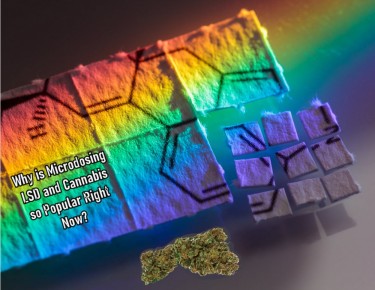
LSD treatments for Alzheimer’s surge with new research from the Beckley Foundation
The premise for the much-needed upsurge in the use of LSD for medicinal purposes has always been an increase in clinical research, and it appears this is about to improve. The recent news that LSD research for Alzheimer’s is to be initiated by the Beckley Foundation is certainly to be welcomed unreservedly. There are certainly still some kinks and nuts to work out before we can see the effect come to light, but it’s a good start. Read on as we shed light on the key things to consider as studies are set to begin as soon as possible.
The foundation’s founder, Amanda Feilding, recently announced that the organization will launch a dedicated research program into LSD. For those familiar with the psychedelics world and the Beckley Foundation, her recent announcement would not have come as a surprise. The new research program will be carried out in collaboration with King’s College London and UCL. The basis of the research program will focus on the effects of full doses of LSD on the brain. Another groundbreaking study the foundation will undertake concerns the effects of microdosing LSD on Alzheimer’s disease. It is reported that this study is being conducted with the University of Basel.
Since its inception in 1998, the Beckley Foundation has spearheaded global drug policy reform and research into psychoactive substances. This has given the Foundation a wide reach as a UN accredited NGO, progressively pushing for reform policies and underpinning them with different streams of clinical research. The new series of studies on LSD is intended to follow in the light of quality studies being undertaken by the Foundation to advocate for policy reform and to harness the benefits of these psychoactive substances.
The company’s first study will aim to understand the full extent of LSD’s effects on the brain and the changes that accompany it. Many have characterized this as a mystical experience, and that is what the initial study seeks to explore. This will serve as a basis for understanding and encouraging the growth of psychedelics-assisted therapy. Exploring the deep sense of connection that the user feels in relation to the observed brain changes may very well be the solution to previous queries.
This novel study may also break the boundaries between what is known and what is not known in the neurobiology of consciousness. This makes the collaboration between Fielding and the neuroimaging expert from King’s College London and UCL very compelling and timely. The researchers will use the latest neuroimaging technology for the analysis. It is therefore expected that every important detail will be carefully monitored and fully explained. Therefore, there is no doubt that significant brain changes will be identified and understood that could be inspirational in understanding the effects of LSD on the brain.
Physicians from the University of Basel will collaborate with Fielding on the Beckley Foundation’s second novel study. The study is designed to investigate the therapeutic effects of microdosing LSD to treat some symptoms in patients with Alzheimer’s disease. The main symptoms of focus are apathy and depression, which are common in patients suffering from Alzheimer’s disease and other forms of neurodegenerative diseases. The research will surely be monumental as its findings could serve as a basis for other concurrent studies on the subject.
A less distinctive third study is also being conducted by the Beckley Foundation in collaboration with Cornell University. The basis of the research focuses on understanding how LSD affects blood circulation in the body and also the influence of neurons on this circulation. The research is to be carried out using advanced optical imaging, which is expected to bring a high level of precision and accuracy to the expected results. The combination of these three projects represents a multi-pronged research effort being advanced by the Beckley Foundation while maximizing the latest benefits of improved neuroimaging technologies.
We have already said that those familiar with the world of psychedelics already know who Amanda Fielding is and what the Beckley Foundation stands for. Well, for those unfamiliar with Fielding, it’s commonly referred to as the “Queen of Psychedelics.” She did not come up with this name by accident, it is the product of much work in the world of psychedelic research. She recently received the Science Pioneer Award for organizing Women’s Entrepreneurship Day. This award is significant because it is the first time the award has been presented to a leading psychedelic researcher.
Feilding has co-authored several peer-reviewed studies on psychedelics and has also been in the company of high-quality psychedelics pioneers. With the likes of Albert Hofmann, Terrence McKenna, Sash and Ann Shulgin among many others as thought partners, it’s no wonder she’s received such accolades. Under her leadership, the foundation has collaborated with leading scientists and institutions around the world on various types of psychoactive substances. The list of her research projects is long and includes evaluating the effects of cannabis, LSD, ayahuasca, psilocybin, DMT and MDMA.
The Fielding and Beckley Foundation are not holding back their studies on LSD and in a very short time a great deal of research will begin and results will come in. Many expect favorable results from these studies as they could signify a new lifeline for patients living with Alzheimer’s disease. This could lead to us reaping the medicinal benefits of LSD either in its full dose or through microdosing. It is also expected that more research on LSD will follow this series of studies, and this can only be good news for those who recognize the potential of LSD.
MICRODOSING OF LSD, READ MORE..

WHY EVERYONE MICRODOSES LSD? READ THIS!

Post a comment: